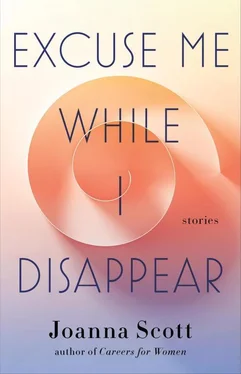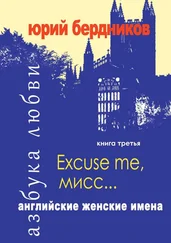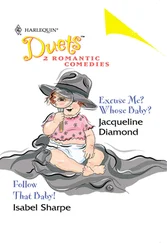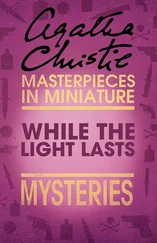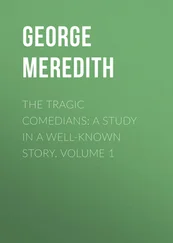I’d be without income, for starters. If I weren’t an NAP agent, I’d be unemployed. Truly, I’m thankful for the paycheck, but I also believe in the worth of the mission. This whole project is about memory. By remembering, we can avoid repeating the mistakes we made when we considered ourselves ingenious and invulnerable.
IV.
NAP Recovery Record: catalogued July 17, 2052
1) Treatise on How to Perceive from a Letter the Nature and Character of the Person Who Wrote It, author unknown, 1622: translation.
2) The Queensberry Rules, London Amateur Athletic Club, 1867: found document, complete.
3) Epistle to Posterity, Petrarch, 1351: translation.
4) With Americans of Past and Present Days, J. J. Jusserand, no date: found document, incomplete.
5) A Tutor for the Renaissance Lute, Diana Poulton, copyright page missing: supplied by owner.
6) Book of the Prefect, author unknown, 950: translation.
7) Songs of Experience, William Blake, 1794: translation.
8) Horse Shoe Robinson, J. P. Kennedy, 1835: found manuscript.
9) Gazette, Rhinebeck, NY, 1947–1949: supplied by municipality.
V.
And lastly, No. 10, which I failed to supply but should have consisted of a summary of Eleanor Feal’s first novel, as transcribed from our interview.
“You must talk to Olivia in person,” she was saying. “Her work is difficult to describe.”
Courtesy kept me from pointing out that I’d come in search of books written by Eleanor Feal, a writer whose existence I’d learned of only in my previous interview with the author Timothy von Patten, himself unknown to me until the prior interview with Leonard Dumaston—and so on.
“She was an Avanti?”
“Of course. Any writer worth the time it took to read was an Avanti.”
Six months earlier, I had set out with half a dozen Avanti writers to track down. The list had grown to include twenty-seven other lesser-known writers who, I was told, were not at all of lesser merit. That I had overlooked them when I’d been researching the movement for my dissertation now seemed inevitable. Avantism was an elusive prey, with its cohorts keeping a low profile. Like nocturnal animals, they spooked easily and melted into the nearest burrow when threatened, disappearing before they revealed much of anything about themselves, camouflaging their work with the work of a fellow author, as the centenarian Eleanor Feal was doing with Olivia Gastrell.
As far as I knew, all the Avanti books had been confiscated, scanned, and shredded over the preceding fifty years—there were no extant copies left in the world. I was still hopeful that someone somewhere would reveal a secret library. New recovery laws protected book collectors from the criminal charges they would have faced in the past, but no one had come forward with any valuable inventory. In the absence of an actual book or manuscript, I could at least provide a detailed recounting of the work that had once existed—this was the purpose of my interviews. But Avanti writers didn’t appear interested in their own work. They wanted to talk about the books by their friends.
“Take Olivia’s Say What You Mean —a central text for the rest of us,” Eleanor Feal was saying. “It tells the story of a young woman…” She studied me, squinting, as if searching my face for a minute blemish. “She had green eyes,” she said. “Yes.” Her satisfaction suggested that she’d solved a difficult equation. “Like yours, the same shade.” How could she be so sure? She was speaking of a fictional character as if she’d met her in person, and comparing her to me. Her scrutiny was making me increasingly uncomfortable. “A literary scholar, as it happens.” I was beginning to wonder if she was using me as a model to fabricate the supposed main character in Olivia Gastrell’s book. “Her name was Juliana. She finds herself living in a time much like ours, after the entire written record of civilization has been wiped out by a computer virus. In the contest of prescience, Olivia wins, hands down. Our young heroine takes it upon herself to… Come in!”
I hadn’t heard a knock, but there was the nurse again, standing in the doorway with a wheelchair, ready to escort Eleanor Feal to the dining room.
“Yumtime!” he said.
“Already? But we were having such nice conversation. I’m sorry, dear. They don’t like it if we’re late for meals around here!” She was suddenly cheery. “They aim to keep us in tip-top shape, you know, on schedule and such! The longer we live, the more federal funding they receive, isn’t that right, lovey?”
The nurse concurred. “It’s a win-win,” he declared. “Andiamo!”
I stood aside as she lifted herself into the wheelchair the nurse had slid toward the bed. In her eagerness to be done with our interview and take her place at dinner, she seemed transformed—deceptively so. She struck me as a woman versed at playing the part of a beloved grande dame who enjoyed being tenderly cared for. In reality, she was a woman who clearly preferred to take care of herself.
“What happens to Juliana?” I demanded, following the nurse as he briskly wheeled Eleanor Feal out of the room and up a carpeted corridor.
“You’ll have to ask Olivia,” she said, lifting her hand above her shoulder, bending her fingers in the shape of a python’s flat head to signal a wave goodbye, a gesture that had a strange, chilling finality, as if scripted to bring an end to the whole story—this story, I mean, the one I’ve begun but will never finish, its incompleteness I could have predicted before I asked my first question.
I gave up trying to keep up with them. As I stood watching the nurse roll Eleanor Feal down the corridor, I thought about the pills she had secreted away in that box in her bedside table. I thought about the stepping-stones of my interviews, from one Avanti writer to the next, that had led me here. I wondered about the cost of a round-trip fare to Fort Worth. I thought about Say What You Mean, by Olivia Gastrell. How could I be sure that it had ever existed? I wondered about all the other books that I would never read.
The fur trapper emerges from the shade of the pine forest into the open bowl of a valley. He hasn’t eaten since dinner last night, and he is glad to anticipate his next meal among the herd of bison grazing in the meadow. Later, he will claim that the bison were as tame as cattle when he walked among them, that he came so close he could hear their teeth ripping the grass, that one sweet calf even let him run his hand over the blond fur on its back.
Only when he cocks his rifle does the herd take notice, and then the stampede that follows seems to progress in a languorous, nearly soundless fashion, reminding Jim Bridger of pictures in a zoetrope that is being turned too slowly. He takes aim and fires. A young bull buckles instantly, diving horns first into the grass. The rest of the herd continue their lazy retreat, leaving Bridger to his kill.
He makes camp on the bank beside a shallow, twisting thread of water he names Tangled Creek in his mind. He builds a fire, spears the tenderloin he carved from the animal, and turns it patiently in the flame, giving it a good black crust. To warn away wolves and grizzlies that are sure to be drawn to the carcass, he keeps his fire burning through the night. He rests contentedly, drifting with the clouds in and out of sleep.
By morning, buzzards are circling overhead, and the eyes of the bison are thick with flies. Bridger douses his fire, straps on his pack, shoulders his rifle, and sets off in a northeasterly direction. He follows Tangled Creek for two days, turning this way and that. The grasslands give way to sagebrush, the sagebrush to fir trees that grow a hundred feet high and cover the earth in a layer of soft needles.
Читать дальше
